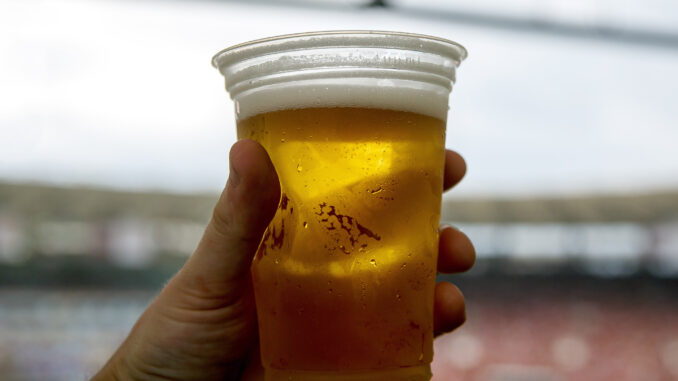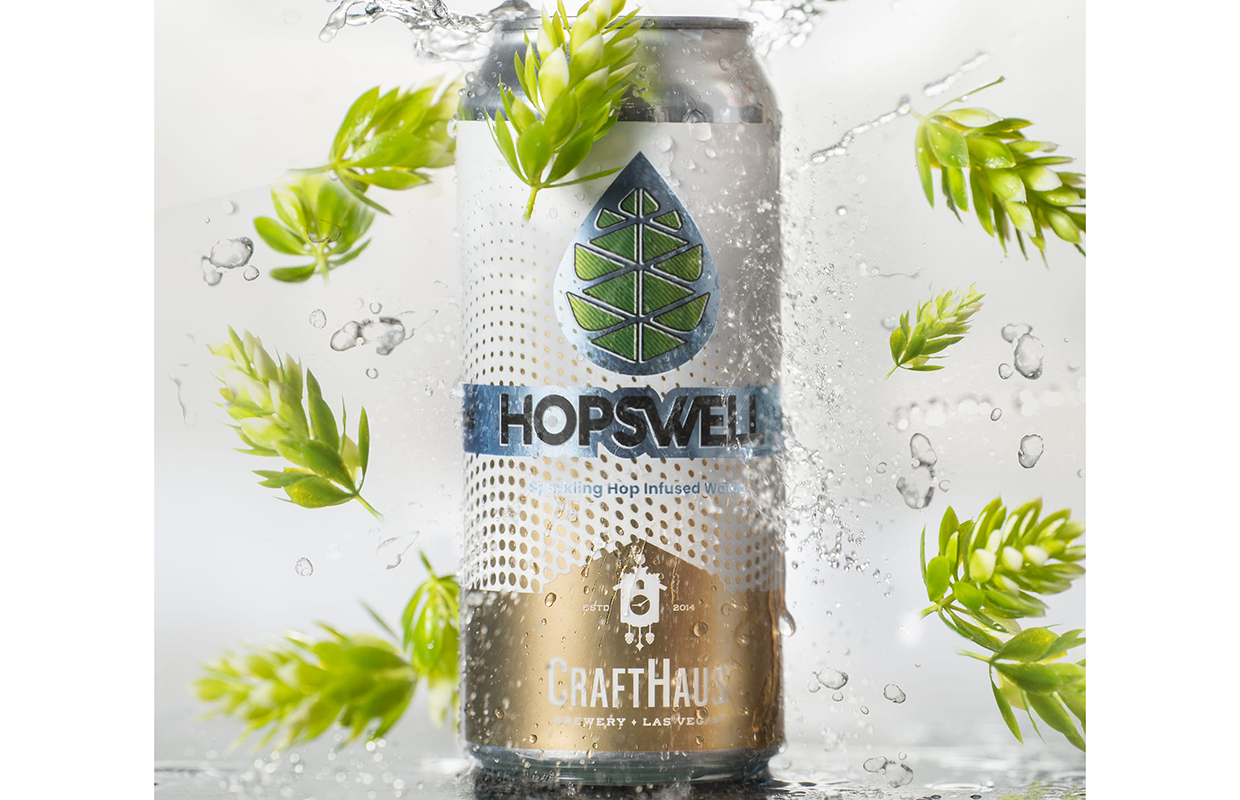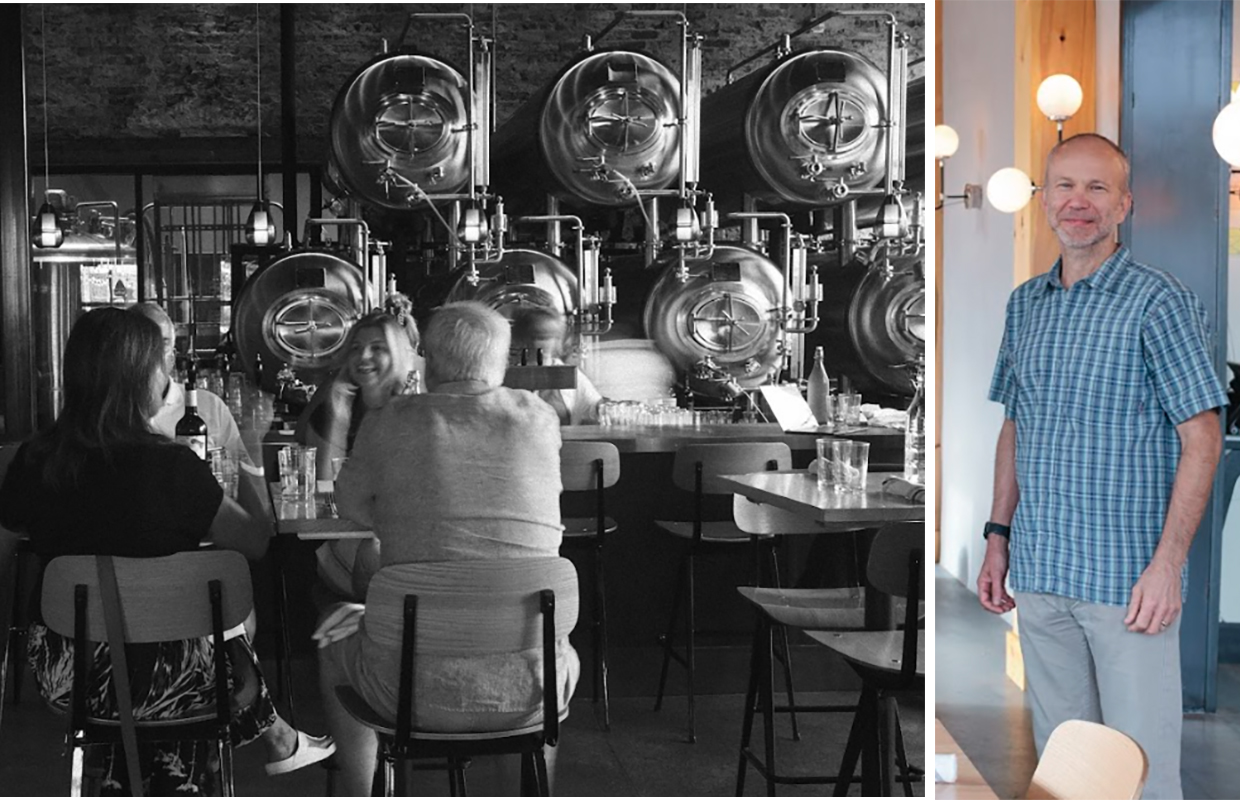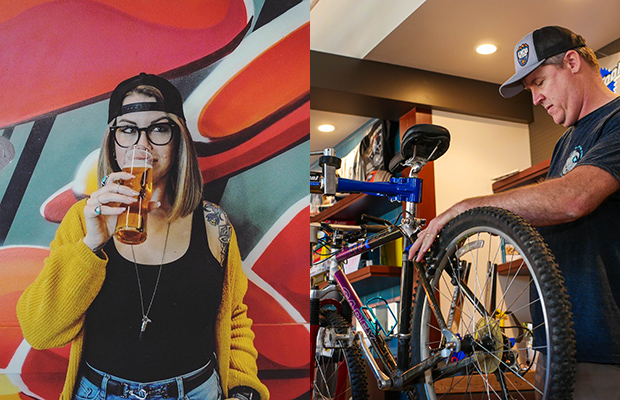
It’s almost summer and in America that can mean baseball and beer. Many sports venues, not just ballparks, have become ways for craft breweries to expand exposure opportunities. Although the appeal of being in a sports venue can be an attractive prospect, is it financially sound?
Larry Horwitz posed that question to Brewer Mag a few months ago and the announcement of Fat Head’s Brewery becoming the official craft beer of the Cleveland Guardians this week made us go back to take a look.
Traveling around the country to interview breweries means stops at various sports venues as well, and looking for the local craft beer option has always been a priority.
“Out there in the marketing world, there’s a lot of people trying to get marketing dollars from small brewers. And that seems to be especially poignant around alcohol placements at sports stadiums,” Horwitz said. He is the Head of Brewing Operations of Crooked Hammock Brewery and shared insights in a recent issue of Brewer Mag. “I don’t want to disparage anybody’s choices, but I will say it would behoove you, if you’re considering such a relationship, to ask the venue in question, what its actual sales numbers are for units inside of their facility.”
READ MORE: Innovation Ahead! Matt Cole & Chris Allmont Don’t Fear Fat Head’s Hop Experiments
Sometimes, it’s the distributor sometimes asks this question. Often stories get told about how much beer can be sold at venues — from minor league baseball to local racetracks or even golf courses.
Horwitz said he has a question that breweries should ask when given this preposition.
“I usually say, ‘That’s awesome. So if you agree to pre-purchase 200 cases of this product, we will get to work on it immediately,’” he said. “You would be shocked about how many people are like, ‘What?! 200 cases?!’
“It has a way of putting a fine point on the issue, which is, what is a lot of beer to one person is not necessarily a lot of beer to somebody else.”
It’s important to have a frank conversation with your distributor or the venue in question about how the beer is managed. Are they on the hook if the beer doesn’t sell?
“A lot of distributors are avoiding being on the hook if the beer doesn’t sell for obvious reasons, they don’t want the financial risk,” Horwitz said about negotiations with distro partners. “That puts the financial risk right back on the brewery.”






Be the first to comment